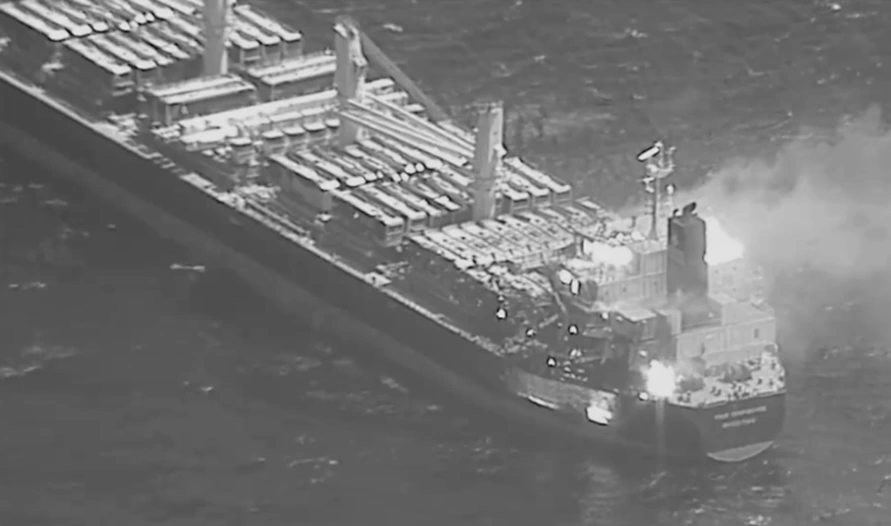
Iran has thrown the Middle East into “a convergence of crises” with its military support of Hamas in Gaza and the Houthis in Yemen, Army Gen. Michael Kurilla told the Senate Armed Services Committee Thursday.
Calling it “the most volatile situation in 50 years,” Central Command’s top commander said Tehran has “every proxy operationalized” to include militias in Syria and Iraq, who have launched missile and drone attacks killing three American service members, and Hezbollah in Lebanon engaged in cross-border shelling with Israel.
In the Middle East, to help finance these militia operations, ran is selling 90 percent of its oil to China, Kurilla said.
Despite backing militias, Iran does not want war with the United States, Kurilla said. Tehran remains on “the threshold” of becoming a nuclear power.
That is the second prong of Tehran’s strategy to be the dominant regional power.
If Iran becomes a nuclear power, it “would change the Middle East … forever,” he added.
Kurilla added the key to deterrence is “Tehran has to understand there are consequences” but “deterrence is temporary.” He said there have been more than 170 attacks on U.S. forces in Syria and Iraq since Oct. 7, the day Hamas in the Gaza Strip launched a series of attacks on Israel. There have been eight U.S. military strikes in response.
In the Red Sea, the Houthis attacks are creating a global problem in disrupting international maritime trade. A strike on M/V True Confidence Wednesday killed three merchant sailors, the first deaths since the Houthi attacks began, USNI News reported.
Kurilla said the United States economy relies on safe transits of commercial shipping through the Red Sea. He added 30 percent of all maritime trade passes through it waterways.
Kurilla said 24 nations’ navies are participating in Operation Prosperity Guardian trying to protect container and tanker ships in the Red Sea. But the continuing strikes have cause an increasing number of shippers to take the far longer route around the Cape of Good Hope at Africa’s southern tip for safety.
The result of the change to a longer route for consumers is “products being late to market and higher prices,” said Kurilla.
The attacks haven’t stopped despite the maritime patrols and airstrikes by Washington and London on suspected launch sites and assembly plants for the drones and missiles in Yemen.
“You have to have a layered defense” on land and sea to protect against drone attacks. Swarms of cheap attributable drones flying low and slow pose a particularly acute danger. Kurilla urged Congress to pass a supplemental budget, which would provide him with more than $530 million for more high-powered microwave systems and relatively cheap Army Coyote interceptors to take done that kind of attack.
“The Army has sent some directed energy” systems to defend against drones. “I wish the Navy would send more.”
The U.S. needs to be able to better figure out the cost balance of shooting down Houthi missiles and drones with million-dollar plus defense systems, he said.
The supplemental, which has been tied up in Congress since October, also would provide more than $60 billion to Ukraine and lesser amounts to Israel, Central Command, Taiwan Indo-Pacific Command.
An equally tough assessment of security in Africa came from Marine Corps Gen. Michael Langley, Africa Command’s commander.
“A number of countries [from Libya to Morocco] are at the tipping point” of coming under Russian influence while military coups in West Africa threaten democracy across the continent
In Africa, Russia and China “want that ground” for military advantage and access to the continent’s minerals.
Langley said Moscow “is trying to take over Central Africa and the Sahel,” the region south of the Sahara desertThe Kremlin “wants gold and rare minerals” that can be found there. One way Russia is gaining influence is its controlling the narrative of what the United States is actually doing on the continent through the State Department, USAID and private investment, he added.
“It’s very essential our African partners understand we’re here to help,” Langley said. But “they ask ‘why aren’t we important enough to have an ambassador,”’ he added. Eight African nations, including Nigeria, the continent’s largest, and Djibouti, host to an American and a Chinese naval bases, do not have an ambassador.
“Our adversaries rely on parasitic practices,” such as balloon payment on loans through China’s Belt and Road infrastructure program, to get their way and take over control of airfields and ports, as it has done in the Indo-Pacific.
Militarily, Langley added that China is looking at West Africa to locate a second naval base. “China has a long-range plan. I believe they have strategic ambitions” to assert themselves as a naval presence in the Atlantic, he said.





